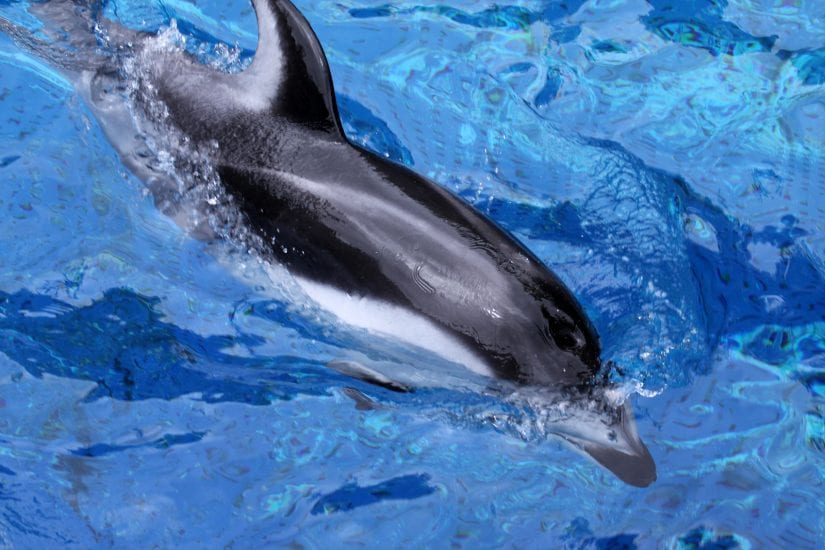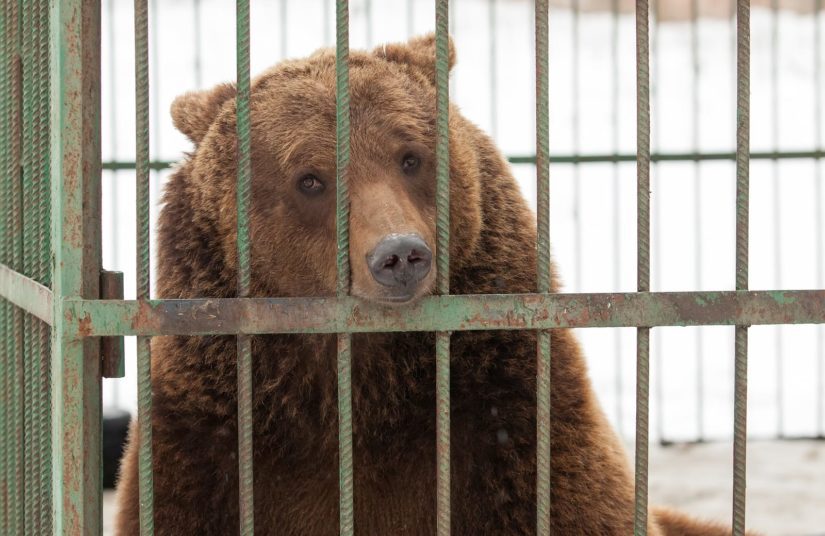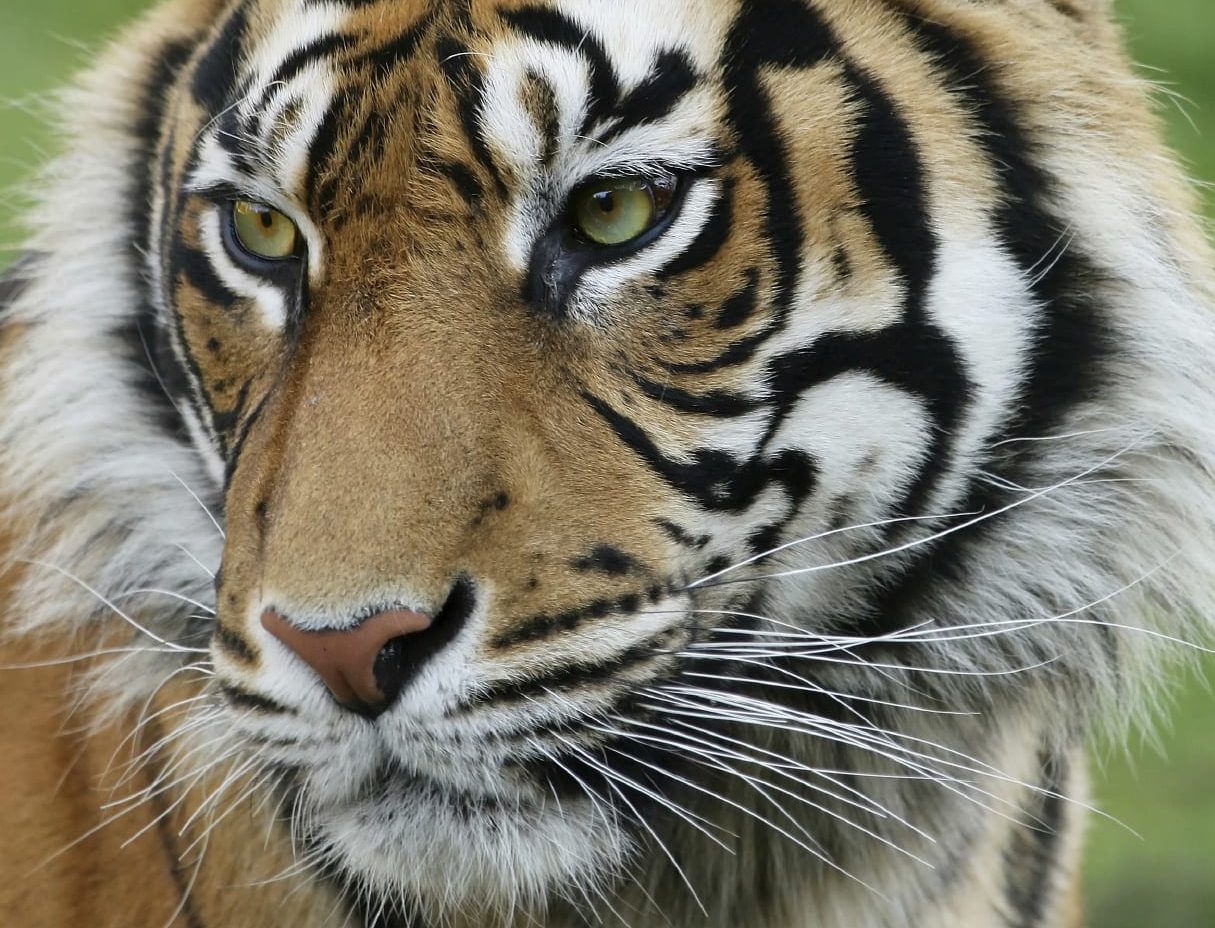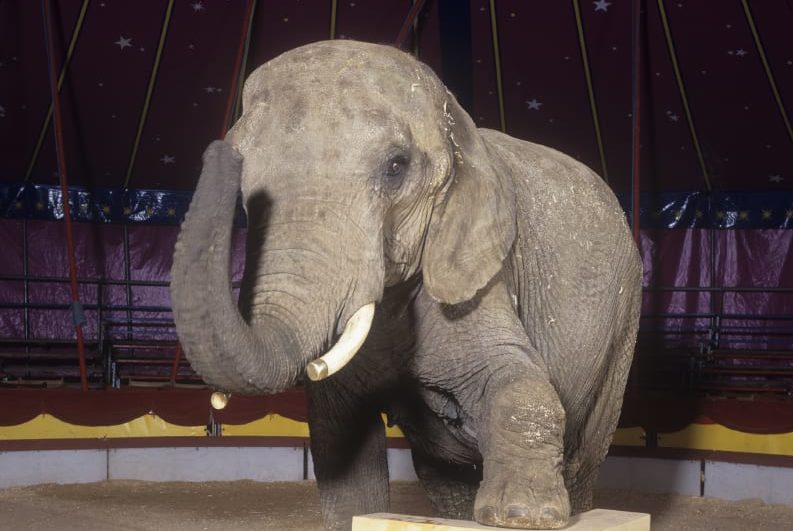Wild and exotic animals live in captivity for a variety reasons, many for human entertainment. At one time, animals were kept in captivity so that humans could better understand the natural world. Now we know that the complex environments and specialized needs of such diverse and smart animals can’t be provided in captivity.
It’s time for change.
Did you know there are more than 2,300 tigers living as “pets” in Canada? Or that it’s still legal to trade ivory?
In March 2022, the Jane Goodall Act was reintroduced into Parliament. This ground-breaking legislation would help protect Canada’s most vulnerable exotic and wild animals in captivity. As written, the bill would:
- ban new captivity for more than 800 species – including elephants, great apes, big cats and many others
- ban trade in elephant and ivory horns and hunting trophies
- ban the use of all designated animals in performance
- create a new designation for zoos and aquaria, and create a permitting system for these organizations
The bill also represents a unique coalition of government, animal welfare groups and accredited zoos. Senator Marty Klyne notes that supporting this bill is an act of reconciliation – recognizing Indigenous traditional values and relationships with animals in a good way.
Stay tuned, and find out when it’s time to take action:
[wplosurvey_insert_post ids=109773]Zoos
The BC SPCA is opposed to keeping wild and exotic animals in captivity, unless the Five Freedoms can be met. This is impossible for intelligent and social animals like primates, elephants and cetaceans, and animals with large home ranges like bears, lions, tigers and other big wild cats.
Phasing out collections of these animals is a step in the right direction. Until then, individuals and organizations should strive to meet the Five Freedoms at all life stages, on and off exhibit. This means creating species-specific enclosures that meet the physiological, emotional and behavioural needs of the animals.
Aquariums
The BC SPCA opposes the capture, confinement and breeding of marine mammals for entertainment or educational display. We support phasing out these programs because it is not possible to fully meet the Five Freedoms.
Institutions, facilities and businesses that have marine mammals must aim to provide the Five Freedoms and meet the highest professional accreditation standards.
Concern for captive cetaceans is growing among the public and scientific community. The BC SPCA recognizes that animals currently in captivity are not releasable. We support creating sanctuaries for whales and dolphins to provide the large and diverse habitats they need, such as the work of the Whale Sanctuary Project to build the first-of-its kind sanctuary in Nova Scotia.
In June 2019, Bill S-203 was passed to end the capture and captivity of cetaceans for entertainment in Canada. Learn more about this federal bill.
In April 2014, the BC SPCA made bylaw recommendations to the Vancouver Park Board toward phasing out cetacean programs at the Vancouver Aquarium. Read our letter to the Vancouver Park Board (PDF).

Circuses
The BC SPCA is opposed to using wild and exotic animals in circuses or in travelling exhibitions, like fairs and attractions. Some of these animals are restricted by provincial legislation, making it harder for companies outside B.C. to come into the province with these animals. However, animal circuses still exist in Canada. Zoocheck Canada is a national charity dedicated to protecting wildlife in captivity and in the wild. It has information on circuses and the welfare of circus animals in Canada, and a listing of animal-free circuses.
Entertainment – movies, TV, sports
The BC SPCA is opposed to keeping and using wild and exotic animals in the film and television industry. These industries are unable to provide for the welfare of these animals in captivity. With new technologies available, there is no need for wild or exotic animals on set.
Wild and exotic animals are frequently used in filming, even in B.C. They live an unnatural life in cages and on the road, all for our entertainment. There are no assurances these animals are cared for or treated humanely on or off set.
Some wild and exotic animals are kept as mascots or used for sports like bear baiting and kangaroo or primate boxing. Using animals this way is unnecessary, inhumane, disrespectful and unethical.

Subscribe to Action Alerts
Want to be the first to know about actions you can take on behalf of animals? Subscribe to receive Action Alerts.


